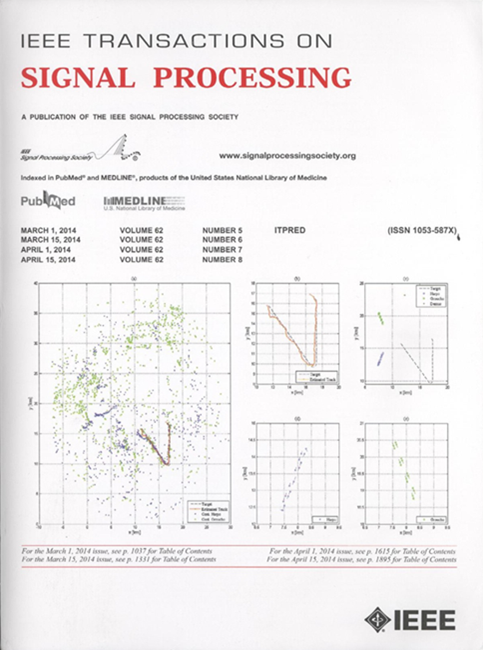Robust and Unambiguous Four-Channel Monopulse Two-Target Resolution: A Polarimetric Closed-Form Approach
IF 4.6
2区 工程技术
Q1 ENGINEERING, ELECTRICAL & ELECTRONIC
引用次数: 0
Abstract
Four-channel monopulse (FCM) technique is integral to contemporary radar systems for pinpointing and tracking multiple targets. However, the practical utility of FCM is significantly hindered by the issue of estimation failure, which arises from the specific relative phases and positions of the targets. In this paper, we introduce a polarimetric four-channel monopulse (PFCM) approach designed to deliver efficient, robust, and unambiguous resolution of two targets. Generally, PFCM adaptively modulates the null-polarization for each target. We begin by dissecting the limitations of the traditional method, utilizing the closed-form solution of FCM. Subsequently, we devise a novel closed-form solution that harnesses polarimetric adaptive nulling (PAN) technology to estimate the angles of the two targets under two distinct scenarios: the ideal condition and angular ambiguity. Under ideal conditions, estimation is conducted directly using the received signals. Incorporating polarization information mitigates the estimation results’ sensitivity to relative phase. To counteract the challenges of PAN failure in angular ambiguity situations, the proposed PFCM adeptly resolves the two targets by reconstructing the four-channel signal, indicating its applicability across various relative target positions. Furthermore, we present a comprehensive performance analysis focusing on three critical aspects. As a result, two closely spaced targets can be resolved robustly and unambiguously with minimal complexity. Numerical simulations and experimental results are substantiated to validate the effectiveness of the proposed method.稳健、明确的四通道单脉冲双目标分辨率:极坐标闭式方法
四通道单脉冲(FCM)技术是当代雷达系统精确定位和跟踪多个目标不可或缺的技术。然而,由于目标的特定相对相位和位置造成的估计失败问题,极大地阻碍了 FCM 的实际应用。在本文中,我们介绍了一种偏振四通道单脉冲(PFCM)方法,旨在高效、稳健、准确地分辨两个目标。一般来说,PFCM 可自适应地调节每个目标的空极化。我们首先利用 FCM 的闭式解剖析了传统方法的局限性。随后,我们设计了一种新型闭式解决方案,利用偏振自适应归零(PAN)技术在两种不同情况下估计两个目标的角度:理想情况和角度模糊情况。在理想条件下,估算直接使用接收到的信号。加入极化信息可减轻估计结果对相对相位的敏感性。为了应对角度模糊情况下 PAN 失效所带来的挑战,所提出的 PFCM 通过重建四通道信号巧妙地分辨出两个目标,这表明它适用于各种相对目标位置。此外,我们还针对三个关键方面进行了全面的性能分析。其结果是,两个间隔很近的目标能以最低的复杂度被稳健、明确地分辨出来。数值模拟和实验结果证实了所提方法的有效性。
本文章由计算机程序翻译,如有差异,请以英文原文为准。
求助全文
约1分钟内获得全文
求助全文
来源期刊

IEEE Transactions on Signal Processing
工程技术-工程:电子与电气
CiteScore
11.20
自引率
9.30%
发文量
310
审稿时长
3.0 months
期刊介绍:
The IEEE Transactions on Signal Processing covers novel theory, algorithms, performance analyses and applications of techniques for the processing, understanding, learning, retrieval, mining, and extraction of information from signals. The term “signal” includes, among others, audio, video, speech, image, communication, geophysical, sonar, radar, medical and musical signals. Examples of topics of interest include, but are not limited to, information processing and the theory and application of filtering, coding, transmitting, estimating, detecting, analyzing, recognizing, synthesizing, recording, and reproducing signals.
 求助内容:
求助内容: 应助结果提醒方式:
应助结果提醒方式:


